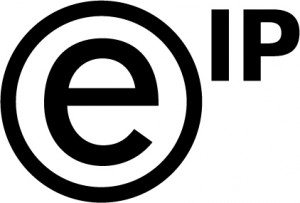James is trainee at Withers & Rogers LLP. He started in July 2014 after finishing his MSc in Management of Intellectual Property at Queen Mary University of London.
Part way through my penultimate year at university, I suddenly realised I had no idea what I wanted to do with my life. I always assumed I would end up in research, if not that, then accounting or banking. But none of those things made me excited to leave the comfort of student life. It wasn’t until I learnt about the patent industry that I realised I could do something challenging with my degree that presented me with variety and intrigue in my every day work. There isn’t a week that goes by without intellectual property law making the headlines – whether it’s tech giants suing each other in billion dollar litigation cases or patents filed for world-changing technology like driverless cars and the Internet of Things. As a patent attorney you work at the cutting edge of innovation and that’s part of what makes it such an interesting job.
How did you get your job at Withers & Rogers?
I researched the IP market and short-listed the firms that I thought would provide a dynamic environment and one where I could get the training and support to progress and develop a strong career. I applied for graduate positions at each, including sending my CV and completing an application form for Withers & Rogers.
Withers & Rogers invited me to do online tests for the second stage of the application process. These were straight forward and it was fun to find out my results after the process was over. I was then invited into the office for the third and final stage.
The graduate assessment day involved an interview, a couple of written tests, delivering a presentation on a subject of my choice and participating in a debate. I can remember being very nervous at the start but everyone at W&R was so welcoming that I soon forgot I was being assessed.
The week after I found out that myself and one other applicant had been offered a job. I accepted right away as I knew W&R was somewhere I’d really enjoy starting my career as a patent attorney.
What are the most stressful parts of the job?
The most stressful thing has to be the deadlines. Once in a while the stars will align and you find yourself with three bits of work, all from different people, and they all need to be done by the end of the day. The trick is not to panic, try and prioritise, and ask for help if you need it.
That said, most of the time I find myself dealing with cases that have deadlines weeks or months ahead and you have plenty of time to sit down and get to grips with them. Sometimes it’s nice just to read a case file from start to finish to really understand how the process works, and also to see all the different queries and issues that can crop up from case to case.
Do you have any advice for anyone wanting to get into the industry?
Be persistent and be yourself. There are more patent firms out there than you realise but competition is stiff and you may not get a place at the first few you apply to. Each firm will have their own ideas about the type of person they want working with them and it’s your job to do your research and find the one that is best suited to you. Showcase your personality as well as your talents in your CV and covering letter; let your future employer know that you’re exactly what they’re looking for and someone they’d enjoy working with.
What are your main duties/roles?
I work in the Electronics, Computing & Physics group as my background is in Physics. The core of any trainee’s responsibilities lies in prosecution. This covers things like reporting case updates to clients, responding to search/examination reports and devising interesting ways to circumvent particularly pedantic objections.
Every so often you’ll be faced with something different. You might have to write a patent specification yourself, or need to ensure a change of ownership is recorded in various different countries. These other tasks are just as important to master, but much less common.
There are also opportunities to get involved in other areas of the business. Early on in my training I became involved in a large project with the validation department, which deals with the transition from a European patent to a national one. I worked with them for several months, which gave me a chance to really understand a part of the patent process that many other trainees may not get to experience.
Is it a 9-5 job?
For the most part, yes. As with any job though, there are times you will have to stay late to finish off a piece of work or attend a seminar to meet clients. Withers & Rogers prides itself on promoting a healthy work/life balance and as long as you work hard while you’re at work and meet your deadlines, then staying late isn’t a common occurrence.






